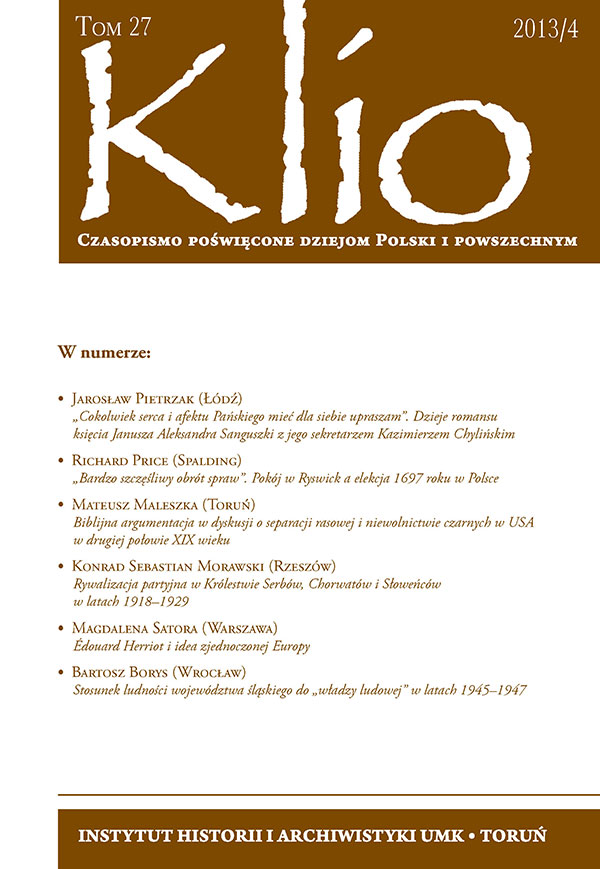Édouard Herriot i idea zjednoczonej Europy
DOI:
https://doi.org/10.12775/KLIO.2013.054Abstrakt
Édouard Herriot and the Idea of United Europe
(Summary)
Édouard Herriot was one of the leading European politicians, who became involved in propagating the idea of the European integration in the 1920s. He closely collaborated with the main figures of the European unification movement – the author of the Pan-european project – Richard Coudenhove-Kalergi, and Aristide Briand, Franch Prime Minister who proposed the conception of the United States of Europe in 1930. Herriot was the first governing politician to officially support Paneuropa in 1924. Afterwards in subsequent public speeches and articles he called for bringing this plan into effect. Few years later he also became involved in propagating the Briand Plan. At the same time he created his own concept, differing in some important aspects from the Pan-european project and the Briand Plan. He presented its details in the book „Europe” published in 1930. After Briand’s death he became the main figure of the European unification movement, however, in the mid-1930s, he broke with it because of the conflict with Coudenhove-Kalergi. After World War II he become once more involved in the actions for European integration. He continued it until the beginning of the 1950s. Despite the important role he played in the European unification movement, his actions usually remain in the shadow of his famous collaborators’ plans and he is perceived only as a promoter of theirs ideas. Herriot’s biographers omit this aspects of his political activity, and the authors writing about the history of the European integration give only fragmentary account of it. The main goal of this article is to show Herriot’s real importance in creating and propagating European integration ideas in the interwar period and after the World War II.
Pobrania
Opublikowane
Jak cytować
Numer
Dział
Statystyki
Liczba wyświetleń i pobrań: 847
Liczba cytowań: 0



